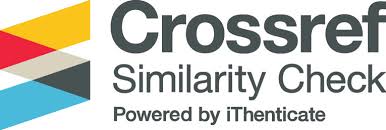The Impact of The Covid-19 Pandemic on the Efficiency and Budget Performance of Vocational University in Indonesia
DOI:
https://doi.org/10.33827/akurasi2023.vol5.iss2.art208Keywords:
efficiency, performance budgeting, public service agencyAbstract
The COVID-19 pandemic has caused a crisis in global economic growth. To confirm the situation, this research aims to determine the impact of the COVID-19 pandemic on several vocational colleges in Indonesia. This research uses a quantitative descriptive method with collected data in 2020-2021 from vocational colleges in the Directorate General of Vocational Education, Ministry of Education, Culture, Research and Technology. The results indicate a decline in budget efficiency and budget performance by 19 percent and 4.49 percent respectively. The research also proves that the college management did not anticipate the effect Covid-19 pandemic on budget efficiency and operational performance. This is identified by the absence of differences in the level of budget efficiency and performance levels at each college. This situation shows that the management did not make any efforts to maintain financial performance during the COVID-19 pandemic.
References
Ajib, M. W., & Thomas, A. (2022). Aplikasi Pengelolaan Data Rba (Rencana Bisnis Dan Anggaran) Pada Blud (Badan Layanan Umum Daerah) Rumah Sakit Konawe. Simtek: Jurnal Sistem Informasi Dan Teknik Komputer, 7(1), 60–68.
Amal, M. I., & Wibowo, P. (2022). Analisis kinerja keuangan pemerintah provinsi DKI Jakarta sebelum dan sesudah pandemi Covid-19. Jurnal Pajak Dan Keuangan Negara (PKN), 4(1), 83–93.
Aubyn, M. S., Garcia, F., Pais, J., St. Aubyn, M., Pina, Á., & Pa, J. (2009). Study on the efficiency and effectiveness of public spending on tertiary education. In Economic Papers no.390 (Issue January).
Berger, A. N., & Humphrey, D. B. (1997). Efficiency of Financial Institutions: International Survey and Directions for Future Research. European Journal of Operational Research, 98, 175–212.
Caves, R. E., & Barton, D. (1990). Efficiency in US Manufacturing Industries. In MIT Press. https://mitpress.mit.edu/9780262031578/efficiency-in-u-s-manufacturing-industries/
Daghbashyan, Z. (2014). CESIS Electronic Working Paper Series Paper No . 245 The Economic Efficiency of Swedish Higher Education Institutions Zara Daghbashyan. January 2011.
de Kruijf, J. A. M., & van Thiel, S. (2018). Political Control of Arm’s-Length Agencies: One Standard Does Not Fit All. International Public Management Journal, 21(3), 461–476. https://doi.org/10.1080/10967494.2016.1269857
De Witte, K., & López-Torres, L. (2017). Efficiency in education: A review of literature and a way forward. In Journal of the Operational Research Society (Vol. 68, Issue 4). https://doi.org/10.1057/jors.2015.92
Direktorat Jenderal Anggaran. (2021). SMART. http://monev.anggaran.kemenkeu.go.id/smart/
Farrell, M. J. (1957). The Measurement of Productive Efficiency http://www.jstor.org/stab. Journal of the Royal Statistical Society. Series A (General), 120(3), 253–290.
Jana, S. K. (2017). Efficiency Analysis of Higher Education Institutes : A Study on Colleges under Vidyasagar University in West Benga .... Scholars Journal of Economics, Business and Management, 4(January), 35–40. https://doi.org/10.21276/sjebm.2017.4.1.5
Jati, H. (2015). Penilaian Efisiensi Universitas LPTK di Indonesia dengan Menggunakan Data Envelopment Analysis. Elinvo, 1(1). https://doi.org/doi.org/10.21831/elinvo.v1i1.10877
Mandl, U., Dierx, A., & Ilzkovitz, F. (2008). The effectiveness and efficiency of public spending. In Economic Papers EU (Issue January). https://doi.org/10.2765/22776
Maryozi, Z., Isyandi, B., & Aulia, A. F. (2022). Pengaruh Pengeluaran Bidang Pendidikan, Kesehatan Dan Infrastruktur Jalan Terhadap Indeks Pembangunan Manusia (IPM) Di Provinsi Riau. , 15(1), 1-11. Jurnal Niara, 15(1), 1–11. https://doi.org/https://doi.org/10.31849/niara.v15i1.7380
Oktavia, D. C. (2022). Pengelolaan Keuangan Badan Layanan Umum Daerah (BLUD) dan Pengaruhnya Terhadap Kinerja Rumah Sakit (Studi Kasus pada RSUD Nganjuk). Universitas Islam Malang.
Prasetyo, A., Dewi, R. R., & Masitoh, E. (2022). Analisis Kinerja Berdasarkan Konsep Value For Money Pada Badan Layanan Umum Daerah (Blud) Puskesmas Penumping Kota Surakarta. Equilibrium: Jurnal Ilmiah Ekonomi, Manajemen Dan Akuntansi, 11(2).
Pribadi, Y., Akhmadi, M. H., & Wardhana, I. W. (2022). Efficiency of Public Universities: The Role of Financial Autonomy in The Pandemic Situation. Jurnal Akurasi, 4(2). https://doi.org/doi.org/10.33827/akurasi2022.vol4.iss2.art179
Robst, J. (2001). Cost efficiency in public higher: Education institutions. Journal of Higher Education, 72(6), 730–750. https://doi.org/10.2307/2672901
Susanto, D. A. (2022). Analisis Kinerja Keuangan Pemerintah Daerah terhadap Mitigasi Pandemi Covid-19 di Indonesia. Doctoral dissertation, Universitas Gadjah Mada.
United Nations Development Programme. (2020). Overview Human Development Report.
Waluyo, B. (2018). Balancing financial autonomy and control in agencification: Issues emerging from the Indonesian higher education. International Journal of Public Sector Management. https://doi.org/10.1108/IJPSM-10-2017-0272
Widodo, P. A., & Khusaini, M. (2014). Analisis Efisiensi dan Efektivitas Belanja Pendidikan (Studi Kasus: 12 Kabupaten/Kota di Jawa Timur Tahun 2012). Jurnal Ilmiah Mahasiswa FEB Universitas Brawijaya, 2(2)
Winarti, E. (2013). Pengukuran Efisiensi Jurusan dengan Metode Data Envelopment Analysis (DEA) di Fakultas Teknologi Industri Universitas Pembangunan Nasional “Veteran” Jawa Timur”. Universitas Pembangunan Nasional Veteran Jawa Timur.







